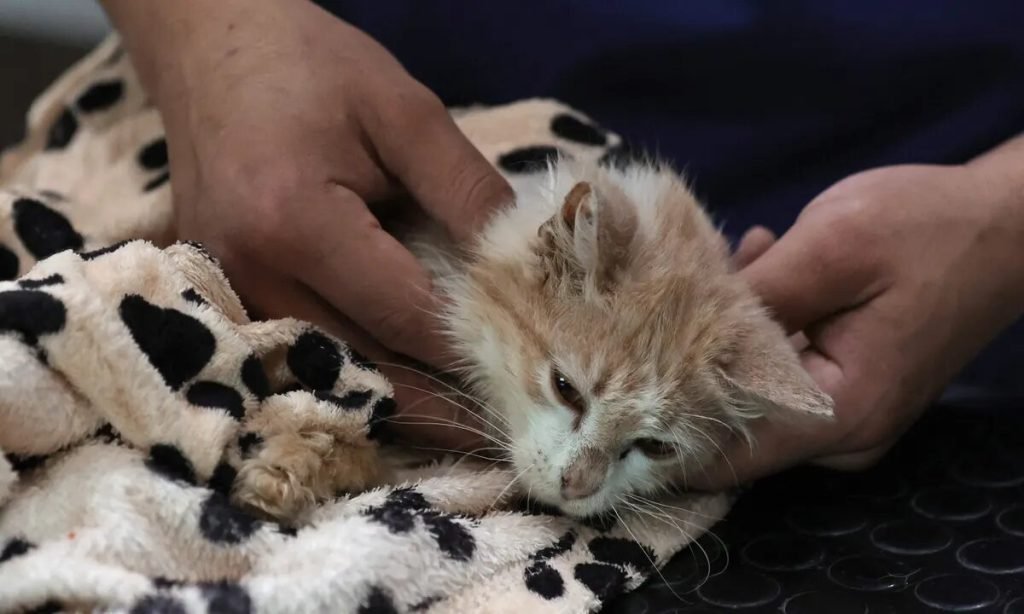Cyprus Crisis FCoV-23
At the heart of the Mediterranean lies the stunning island of Cyprus, renowned for its lively culture and extensive history. Recently, this picturesque haven faced a crisis that stirred both fascination and fear within the community. A significant segment of the island’s one million cats grapples with the outbreak of feline infectious peritonitis (FIP). Responding to this unforeseen and perplexing situation, scientists at the University of Edinburgh, in collaboration with veterinary specialists, have embarked on a mission. Their dedicated efforts have unveiled a groundbreaking finding that transcends the realm of cat health, bringing to light the emergence of FCoV-23
The Emergence of FCoV-23

Researchers searching for the cause of the spike in feline immunopathogenic pneumonia cases discovered FCoV-23, a feline coronavirus that had not been identified before. This was no ordinary coronavirus, though, as FCoV-23 contained essential RNA sequences from the extremely virulent pantropic canine coronavirus (pCCoV). The revelation that this integration was the first instance of a cat coronavirus combining with pCCoV was intriguing to virologist Gary Whittaker, who praised the researchers for identifying “a very interesting and concerning virus.” This integration represented a paradigm shift in virology.
The Perfect Storm of Disease and Transmissibility
When scientists dug deeper into the complexities of FCoV-23, they discovered something that resembled a “perfect storm” of transmissibility and disease severity. FCoV-23 showed a unique ability; unlike traditional feline coronaviruses, which usually enter the gut and cause moderate illnesses, it could cause severe FIP while still infecting the intestines and spreading through feces. One of the main causes of FCoV-23’s increased pathogenicity has been identified as the integration of pCCoV RNA, namely its spike protein.
Solving the Enigma

Veterinarians in Cyprus became quite concerned when FIP cases suddenly increased early this year. Early reports suggested a startling number of deaths, which increased the sense of urgency and prompted quick action. However, later adjustments drastically reduced the numbers. Given the urgency of stopping the spread of FIP, the Cypriot government responded to the situation by approving the use of molnupiravir, a human SARS-CoV-2 medicine, for veterinary usage. This was an unusual move.
Challenges and Unanswered Questions
There are still a lot of unanswered questions following the revolutionary finding of FCoV-23. Margaret Hosie, a virologist, stresses the need for prudence even as she acknowledges the research’s promise. She emphasizes that additional epidemiological information is required to verify the mechanism of FCoV-23 infection and illness. The apparent rise in FIP cases may also be partially explained by increased awareness, which emphasizes the need for thorough data analysis.
Researchers from the University of Edinburgh and Cyprus are working together to evaluate the frequency, fatality rate, and possible neurological effects of FCoV-23. This multi-pronged strategy includes screening local cats for FCoV-23, enhancing diagnostic instruments, and carrying out laboratory research to investigate the virus’s mode of infection of various cell types.
Looking Ahead
The discovery of FCoV-23 highlights the significance of using a thorough, cross-species approach to understand viral evolution, even as the scientific community struggles with the complexity of the virus. Combining the dog and cat coronaviruses provides a rare chance to further our understanding of coronavirus virology on a larger scale, while also illuminating the complex dynamics of viral evolution.
Read More Articles: COVID-19” WHO Comprehensive Guidelines for Optimizing
In conclusion
The discovery of FCoV-23 in Cyprus signals a need for action in the ongoing fight against infectious illnesses, extending beyond a simple scientific finding. FCoV-23 is a testament to the dynamic nature of viral evolution as scientists strive relentlessly to solve the remaining puzzles surrounding this novel virus. In the complex world of infectious illnesses, research is always necessary to keep ahead of new threats. FCoV-23 urges us to adopt a proactive scientific investigation to protect the health of animal and human populations globally. The complex dance of cat and dog coronaviruses on the coast of Cyprus reveals not only a regional emergency but also an important chapter in the history of infectious diseases that affect the entire world.
